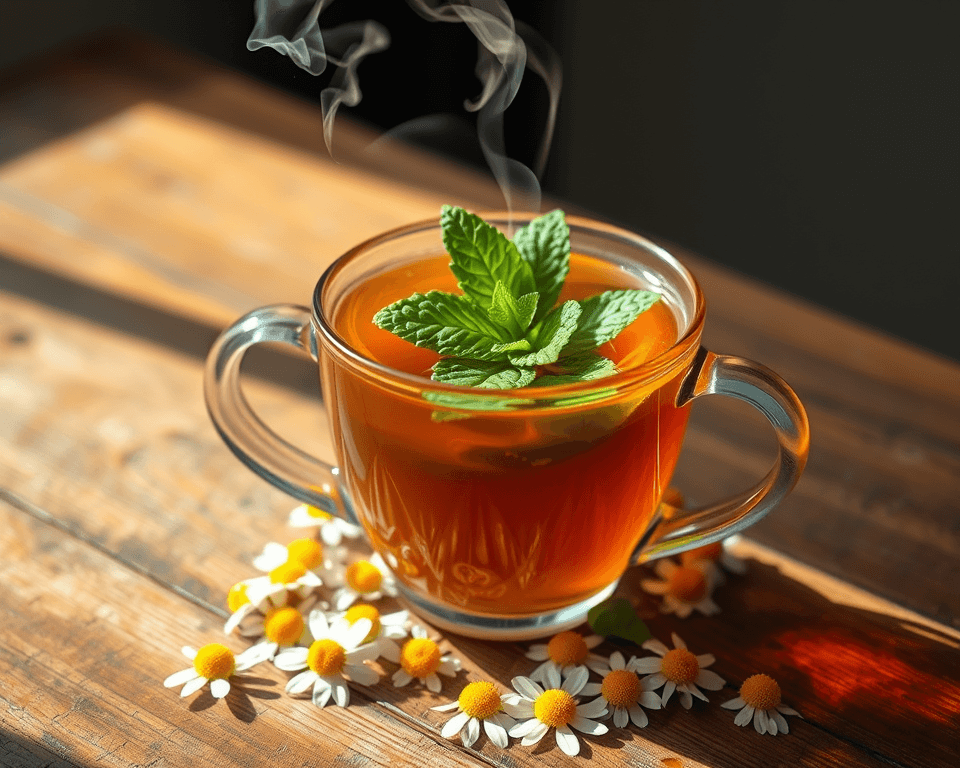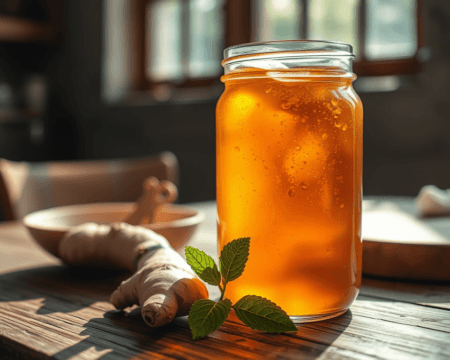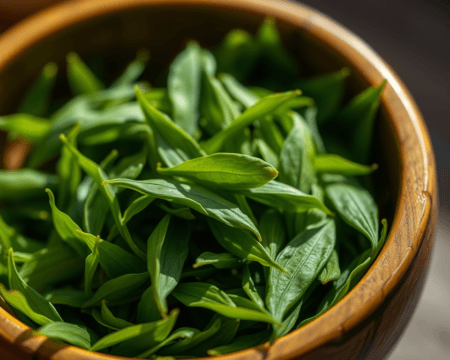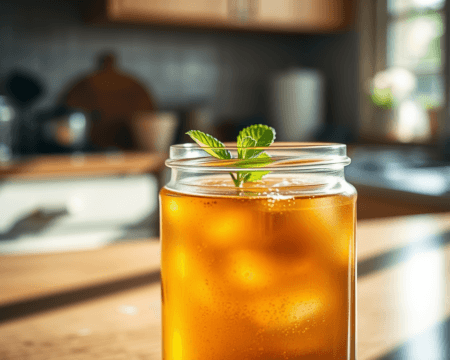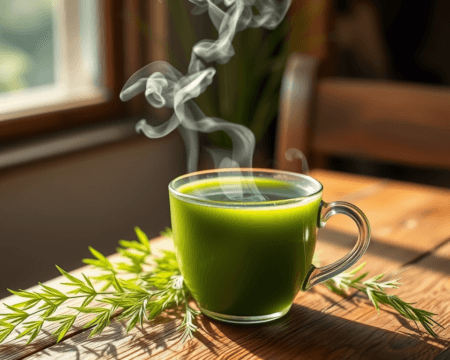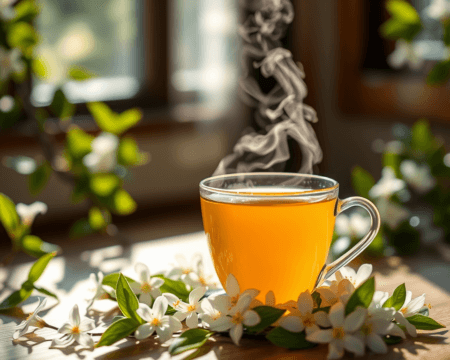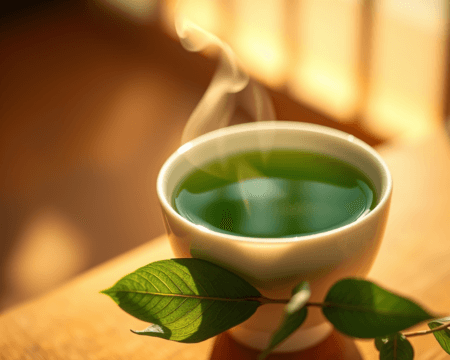Ah, the joys of a stuffy nose! It’s like having a pillow shoved up against your face, making it tough to breathe. Whether it’s seasonal allergies or an unexpected cold, it restricts your airways and keeps you from enjoying life. Fortunately, there’s good news: teas can be your secret weapon against nasal congestion. For someone who’s been there, done that, I’m all about finding natural remedies, and let me tell you, the right type of tea works wonders.
Key Takeaways
- Herbal teas like chamomile, peppermint, ginger, and eucalyptus are fantastic for relieving nasal congestion.
- Traditional teas such as black, green, and rooibos offer additional respiratory benefits.
- Custom tea blends can enhance effectiveness based on personal taste and specific needs.
- Lifestyle adjustments complement the use of tea for a holistic approach to respiratory health.
Understanding Nasal Congestion
What Causes a Stuffy Nose?
Picture this: You wake up one day, feeling like you’ve just run a marathon, except you barely left the bed. That stuffy nose? It’s often a result of nasal blockages caused by inflammation, allergic reactions, or seasonal bugs. The accumulation of mucus in your nasal passages can be a real pain. Whether you’re battling the sniffles from a cold, dealing with sinus pressure, or just being knocked around by environmental factors, it’s crucial to find relief fast.
The culprits can range from seasonal allergies triggered by pollen and dust mites to respiratory infections that hit hard during cold weather. If you’re like me, you want to tackle this problem head-on, and the best part is, nature has provided us with some powerful allies: tea.
Seasonal Triggers
With the temperatures shifting and seasons changing, you might find your nose drumming a different beat. Pollen blooms during spring, dust mites love your cozy home, and dry air can wreak havoc on your sinuses. These seasonal triggers can leave you gasping for breath, making it time to stock up on those soothing brews.
Types of Tea that Alleviate Stuffy Nose
Herbal Teas for Nasal Relief
Looking to kick those nasal blockages to the curb? Herbal teas can be game-changers. Chamomile tea is not just for relaxation; its anti-inflammatory properties can help reduce swelling in your nasal passages. And don’t forget about peppermint! That cooling sensation? It’s thanks to menthol, which acts as a natural decongestant.
I’ve also had great success with ginger tea. Its spicy warmth not only clears the sinuses but also supports digestion, which is a bonus during those cold months! Finally, eucalyptus tea shines with its therapeutic benefits, helping you breathe easier with every inhale.
Traditional Teas and Their Benefits
Now, traditional varieties hold their own in the battle against congestion. Black tea and green tea are packed with antioxidants, which are great for overall health and can help reduce the effects of allergens. Rooibos is caffeine-free and rich in minerals that support your immune system, making it another awesome choice.
Each of these teas has its own brewing methods and health benefits that are definitely worth exploring. Plus, you can sip on these while getting that much-needed comfort.
Properties and Effects of Recommended Teas
Chamomile Tea
Chamomile isn’t just your average bedtime tea. The immune support it offers, coupled with its anti-inflammatory effects, makes it a must-try for anyone struggling with nasal congestion. When you sip on chamomile tea, you’re not only enjoying a calming experience; you’re directly helping manage that mucus build-up. I often brew mine using two teabags in a full mug for an extra kick.
Peppermint Tea
When your nose feels stuffed, what could be better than a cooling rush? Peppermint tea, infused with menthol, promotes better airflow. The soothing effect makes it feel like you’re getting an instant relaxation treatment for your respiratory system. Plus, the essential oils can aid in easing those annoying allergies. Just steep a peppermint bag, close your eyes for a moment, and let the tea work its magic.
Ginger Tea
I swear by ginger tea during those cold months. Its spicy flavor isn’t just delicious; ginger root is a natural anti-inflammatory powerhouse. When I feel the scratchiness in my throat or that annoying stuffy feeling creeping in, I whip up a fresh batch. Simply slice up some ginger, boil it in water, and maybe toss in lemon for good measure.
Eucalyptus Tea
Eucalyptus leaves are more than just aromatic sprigs in your vase. Brewing eucalyptus tea offers therapeutic benefits, and it’s known for its strong respiratory support. It gives you an invigorating sensation while also reducing inflammation. Make it part of your go-to routine, and you’ll appreciate the soothing warmth as it clears your nasal passages.
Creating Your Own Tea Blends for Relief
Custom Recipes
Now that you know what teas work wonders, why not mix ‘n match? Throw together your favorite herbal components and create a DIY tea blend tailored to your needs. For example, combining chamomile and ginger gives you that extra soothing experience while tackling inflammation. Getting creative can do wonders for not only your sinuses but also your palate.
It’s all about experimenting with flavors and combinations. Do you like citrus? Add some lemon. Want it spicy? Toss in a pinch of cayenne or turmeric. The possibilities are endless, and trust me, you’ll find something that hits just right.
Essential Ingredients for Allergy Sufferers
If you’re battling allergies, don’t underestimate the power of ingredients like honey, lemon, turmeric, cayenne, and cinnamon. These natural flavor enhancers not only boost the taste but also provide extra immuno-boosting benefits. Imagine brewing a warm cup with honey’s sweetness complementing ginger’s heat. That’s a delicious way to kick nasty symptoms to the curb!
Complementary Natural Remedies
Other Natural Solutions for Congestion
Tea is a powerhouse, but let’s not restrict ourselves. Other natural remedies can also enhance your experience. Steam inhalation works wonders, especially after sipping on tea. A saline nasal spray can help clear the airways. Humidifiers add moisture to dry rooms, making a significant difference when you’re feeling congested. Don’t forget about throat lozenges; they can soothe irritation while you battle that stuffy nose.
Lifestyle Adjustments
Also, take a step back and evaluate your everyday habits. Staying hydrated is key; drinking enough water can keep your mucus thin. Consider your sleeping positions; sometimes propping yourself up can make a world of difference. So, how about tweaking your diet, too? Incorporating anti-inflammatory foods goes hand-in-hand with tea consumption for ultimate respiratory health. Little adjustments can make a big impact, and you’ll be breathing easy in no time!
The journey to clear airways doesn’t have to be complicated. Sometimes, a simple cup of tea is all you need. Just remember, while these remedies are effective, consulting with a healthcare professional is always wise, especially if symptoms persist.
The next time you find yourself fighting a stuffy nose, put on the kettle, brew up some of this goodness, and embrace the therapeutic power of tea. It’s time to reclaim your breath and say goodbye to nasal congestion once and for all!
Frequently Asked Questions
What herbal teas are best for nasal congestion?
Herbal teas known for relieving nasal congestion include chamomile, peppermint, ginger, and eucalyptus. Each of these herbs has unique properties that help open airways and reduce inflammation, making them effective choices for respiratory relief.
How can I create my own custom tea blend?
To create a custom tea blend, start with your favorite base tea (like green or black tea) and add herbal ingredients targeting specific symptoms, such as chamomile for relaxation or peppermint for congestion. Experiment until you find a combination that suits your taste and needs.
Can traditional teas help with respiratory health?
Yes, traditional teas like black, green, and rooibos contain antioxidants and anti-inflammatory properties that can support respiratory health. These effects may help alleviate symptoms and improve overall lung function when consumed regularly.
Are there any side effects to drinking herbal teas?
While herbal teas are generally safe, some individuals might experience allergic reactions or interactions with medications. It’s advisable to consult a healthcare professional before incorporating new herbal teas, especially if you are pregnant, nursing, or taking prescription drugs.
How often should I drink tea for maximum benefits?
For optimal respiratory benefits, consider drinking herbal teas 2-3 times a day. However, moderation is key. It’s important to listen to your body and adjust based on how you feel.
What lifestyle changes can support respiratory health alongside tea?
Incorporating regular exercise, maintaining a balanced diet rich in fruits and vegetables, staying hydrated, managing stress, and avoiding allergens can greatly enhance respiratory health. Additionally, practices like breathing exercises or meditation could synergize with tea consumption.
Can I drink herbal teas if I have a medical condition?
If you have a medical condition, it’s crucial to consult your doctor before adding herbal teas to your routine. Some herbs may conflict with treatments or exacerbate certain health issues, so professional guidance is important.
How do I store herbal teas to maintain freshness?
To keep herbal teas fresh, store them in an airtight container in a cool, dark place away from moisture and light. Proper storage can help maintain flavor and potency for several months.
Are there specific tea preparations recommended for respiratory relief?
Brewing herbal teas with boiling water for 5-10 minutes can enhance their benefits. For congestion relief, inhaling the steam from hot tea or adding essential oils can also provide additional soothing effects.




